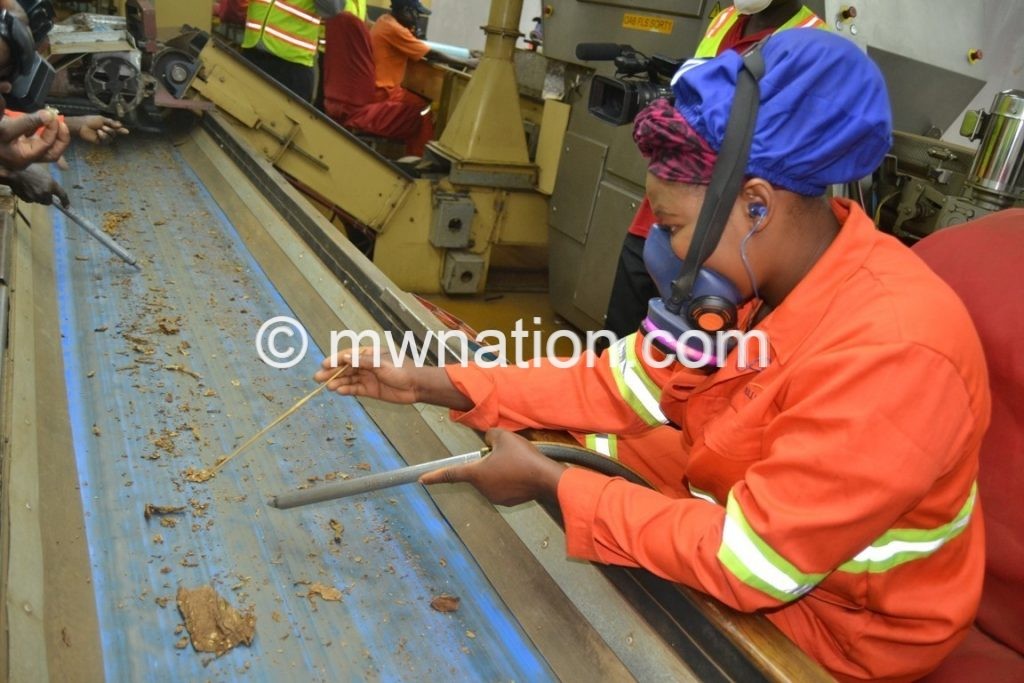Tobacco export ban still haunts Malawi
Anxiety still grips the tobacco industry over the continued imposition of the World Release Order (WRO) or tobacco ban by the United States (US) Government.
Experts have warned that the order will continue to haunt tobacco exports this year.

The World Bank and Tama Farmers Trust are worried that the ban, if left intact during the year, will continue to torment the country’s number one foreign exchange earner, thereby dampening foreign exchange earnings from the crop.
Tobacco remains Malawi’s main export crop, wiring in about 50 percent of total export revenue trailed by tea and sugar.
US Customs and Border Protection issued a WRO on Malawi in November 2019, allowing it to detain tobacco, which is believed to have been produced with forced labour.
Following the WRO, tobacco shipments arriving in USA is detained at the port of entry before being subjected to heavy scrutiny to prove that the leaf is not produced with child labour, which is prohibited under the US law.
Currently, only tobacco from Limbe Leaf Tobacco Company and Alliance One International is admissible at all US ports of entry following the modification of the ban mid-last year.
Tama Farmers Trust chief executive officer Nixon Lita said in an interview on Tuesday that his association is worried about WRO, adding that it is poised to affect the 2021 tobacco season just like the previous one.
“We are still worried [with the WRO] because tobacco exports will continue to be subjected to that this season. This obviously means that one or two containers will continue to be held at the port of entry there,” he said.
Lita said they continue to engage ministries of Agriculture and Labour as well as other key stakeholders in the agriculture sector on the possibility of abolishing tenancy system in tobacco farming, which remain a bone of contention with the US government.
He said: “We want to do away with tenancy in tobacco industry and as Tama, we want the tenancy system to be banned for good. We hope that in the next sitting of Parliament, there will be legislation to ban tenancy system which is being viewed as a form of forced labour.
“We are pleased that under child labour, a lot of messaging has been disseminated and we seem to be making a lot of strides, but we have to do a lot in terms of fighting forced labour as deemed by US government and other countries.”
Under the tenancy system, estate owners, widely called landlords, recruit farmers from distant districts to grow tobacco for them.
The tenants are in turn offered accommodation and food rations on monthly basis as well as a cut of the earnings from tobacco sales proceeds.
US law prohibits the importation of merchandise mined, manufactured or produced, wholly or in part, by forced labour, including convict labour, forced child labour and indentured labour.
In its Malawi Economic Monitor (MEM)—a biannual publication on Malawi economic developments—the World Bank also feared that exports are expected to decline slightly due to lower global demand and trade restrictions.
“The ban imposed by the United States on tobacco from Malawi will continue to affect tobacco exports. However, this could be partially offset by a decline in production of tobacco from other countries within the region such as Zimbabwe and Zambia,” says the bank.
US Embassy spokesperson Douglas Johnston said on Tuesday they recognise that tobacco remains a major contributor to the country’s economy.
He said: “Any tobacco company that exploits labout in the supply chain must do more to improve the lives of farm workers, including children and tenants.
“Government reform, especially in the tenancy system will also help these farm workers.”
Johnston said companies that can demonstrate that their supply chain is free of forced and child labour continue to enjoy access to the US market.
Published National Statistical Office figures indicate that Malawi’s tobacco earning have declined over a 10-year period by 45 percent from $433 million (about K325 billion) in 2009 to $237 million (K182 billion) in 2019.





